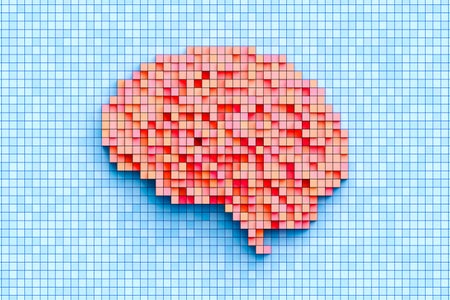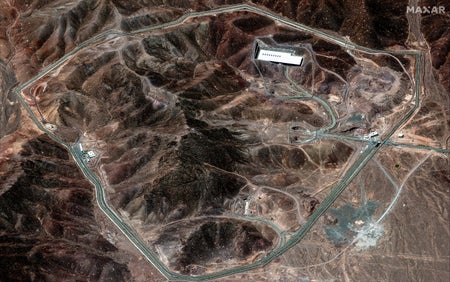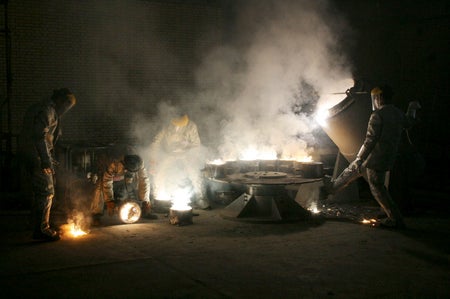
Hulk Hogan’s Biggest Impact May Have Been in Digital Privacy
Hulk Hogan, a larger-than-life wrestler known for his showmanship, succumbed to cardiac arrest after a career marked by digital hoaxes and a landmark battle against online exploitation
Deni Ellis Béchard is Scientific American’s senior tech reporter. He is author of 10 books and has received a Commonwealth Writers’ Prize, a Midwest Book Award and a Nautilus Book Award for investigative journalism. He holds two master’s degrees in literature, as well as a master’s degree in biology from Harvard University. His most recent novel, We Are Dreams in the Eternal Machine, explores the ways that artificial intelligence could transform humanity. You can follow him on X, Instagram and Bluesky @denibechard.

Hulk Hogan’s Biggest Impact May Have Been in Digital Privacy
Hulk Hogan, a larger-than-life wrestler known for his showmanship, succumbed to cardiac arrest after a career marked by digital hoaxes and a landmark battle against online exploitation

Your Chatbot Says It Might Be Conscious. Should You Believe It?
As large language models like Claude 4 express uncertainty about whether they are conscious, researchers race to decode their inner workings, raising profound questions about machine awareness, ethics and the risks of uncontrolled AI evolution

AI’s Achilles Heel—Puzzles Humans Solve in Seconds Often Defy Machines
Discover why some puzzles stump supersmart AIs but are easy for humans, what this reveals about the quest for true artificial general intelligence—and why video games are the next frontier

DeepMind’s AlphaGenome Aims to Decode DNA’s ‘Dark Matter’
This AI system can analyze up to one million DNA letters at once, predicting how tiny changes in noncoding regions trigger everything from cancer to rare genetic disorders—and potentially revolutionizing personalized medicine

New Grok 4 Takes on ‘Humanity’s Last Exam’ as the AI Race Heats Up
Elon Musk has launched xAI’s Grok 4—calling it the “world’s smartest AI” and claiming it can ace Ph.D.-level exams and outpace rivals such as Google’s Gemini and OpenAI’s o3 on tough benchmarks

Japan Wires the Ocean with an Earthquake-Sensing ‘Nervous System’
Japan’s new earthquake-detection network lengthens warning times, and researchers in Wales have harnessed nuclear blast detectors to gauge tsunami risks. But the U.S. lags in monitoring the massive Cascadia megathrust fault

Can Tesla’s Cybercab Share the Road with America’s Myth of the Highway?
For more than a century, cars have meant freedom, escape and self-reinvention to Americans. Now Tesla’s forthcoming Cybercab makes us ask whether we can have the romance of the open road without actually driving it

Why This Is the Only Bomb That Could Destroy Iran’s Nuclear Bunker—Under 300 Feet of Rock
American military engineers designed the GBU-57/B bomb to devastate deeply buried bunkers without radioactive fallout. It’s the only nonnuclear weapon that can reach Iran’s hardest target

What Is Your Cat Trying to Say? These AI Tools Aim to Decipher Meows
AI is shedding new light on the 12,000-year conversation between cats and their humans, suggesting that house cats wield a far richer vocabulary than once thought

How Drone Swarms Work—From Iran’s Shahed Attack to Ukraine’s Operation Spiderweb
Iranian Shahed drones, Ukrainian quadcopters and the U.S.’s Golden Horde program reveal three paths to massed autonomy, and each rewrites the rules of air defense

Could Iran Have Been Close to Making a Nuclear Weapon? Uranium Enrichment Explained
When Israeli aircraft recently struck a uranium-enrichment complex in the nation, Iran could have been days away from achieving “breakout,” the ability to quickly turn “yellowcake” uranium into bomb-grade fuel, with its new high-speed centrifuges

Thermal Runaway Explains Why Waymo Cars Burned So Completely in the Recent Los Angeles Protests
During recent protests in Los Angeles, fires triggered “thermal runaway” in several Waymo robotaxis’ lithium-ion battery packs. The phenomenon sent temperatures past 1,000 degrees Celsius, vaporized much of the cars and spewed lung-searing hydrogen fluoride

YouTube Science Star Derek Muller Confronts PFAS “Forever Chemicals”—In His Own Blood
YouTube star Derek Muller built an 18-million-subscriber YouTube empire by challenging misconceptions about science. Now his own blood test and a sudden EPA reversal give his work urgent relevance.

Is Your Tech Listening? Apple Settles Claim for Siri Eavesdropping
Apple is paying $95 million over claims that Siri secretly recorded private chats and fed targeted ads

Criminal AI is Here—And Anyone Can Subscribe
A new AI platform called Xanthorox markets itself as a tool for cybercrime, but its real danger may lie in how easily such systems can be built—and sold—by anyone

Self-Driving Cars Have New Rules in the U.S. Here’s Why That Matters
New rules that trim crash reporting requirements and widen testing access for U.S. robotaxis are hailed as an innovation edge and criticized for eroding safety oversight